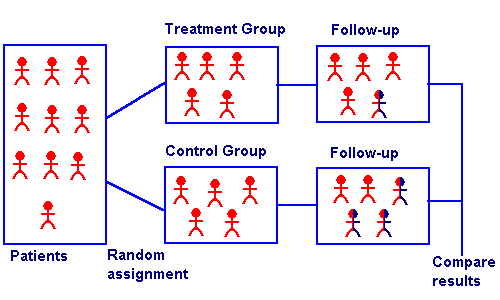Design of Experiments > Recall Bias
What is Recall Bias?
When people remember past events, they don’t usually have a complete or accurate picture of what happened. In fact, it’s been shown that our brains continuously rewrite memories, clouding them with current events, or even editing them completely; five years after an event, 50% of the memories for that event are completely lost. Memories can also be distorted by shock at the time of an event, post traumatic stress disorder or any one of a number of diseases and conditions that affect the brain (i.e. Alzheimer’s, drugs, or a concussion).
Recall bias is a major issue in studies that have self reporting, such as retrospective cohort studies. It’s a type of information bias, and cannot be corrected after a study has been completed. Therefore, you need to make sure this type of bias is avoided (which is almost impossible) or minimized from the beginning.
Recall bias is also known as:
- Reporting bias (although “reporting bias” can also mean something different in science reporting and in clinical trials. See: What is Reporting Bias?) .
- Responder bias.
Studies with High Risk Factors for Recall Bias
Responder bias can be unintentional due to poor or incomplete memory recall, or it can be intentional — perhaps because the person is too embarrassed to admit the truth about a past event. For example, a person is more likely to lie about cheating, having an STD, or multiple sexual partners than they are to lie about getting married, passing the Bar exam or getting a speeding ticket. You can expect to find higher than normal levels of responder bias if your study meets one or more of the following conditions:
- You are investigating something that is socially unacceptable. For example, IV drug use, prostitution or child abuse.
- The disease you are studying is life-threatening or life-changing. For example: cancer or Parkinson’s.
- The patient comes into the study with pre-existing beliefs about it, which may or may not be true. For example: cell phones cause brain cancer, cell phone towers cause leukemia.
Typically, risk factors tend to be overstated in retrospective studies involving one or more of these factors. Therefore, results are usually interpreted with caution.
Tips to Avoid Recall Bias

- Define your research question carefully. A poorly worded research question can result in poor understanding all around.
- Choose and implement an appropriate Data Collection Method.
- Devise high quality questionnaires and ensure your interviewers are well trained. Interviewees should be allowed sufficient time for adequate recall of long term memory.
- Use a prospective study, which can eliminate reporter bias. However, be aware that bias can still seep into prospective studies under certain conditions, so you should be aware of how recall may be affecting your participants’ reporting.
- Use blinding for researchers and patients. Researchers who are not blinded may reassign patients or act differently to patients, offering clues about what treatment they are receiving. Patients who are aware of what treatment they are receiving are much more likely to cloud their opinions and memories about treatment benefits and results.
- If using a case-control study, use nested case-control designs. With these designs, baseline data is collected as well as periodically.
- If studying a disease or condition, choose participants with a new diagnosis if at all possible.
- Verify any information given with a reliable third party, medical record or other trustworthy source.
References:
Bradburn N, Rips L, Shevell S. Answering autobiographical questions: The impact of memory and inference on surveys. Science, New Series 1987; 236(4798):157-161.
Grimes D, Schulz K. Bias and causal association in observational research. Lancet 2002; 359: 248-252.
Image: SUNY Downstate. Retrieved October 12, 2017 from: http://library.downstate.edu/EBM2/2200.htm